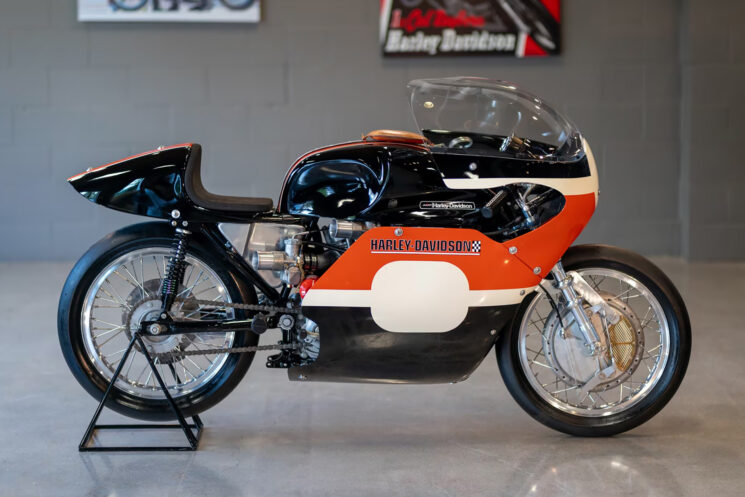
The early 1970s were trying times at Harley-Davidson. The effects of AMF’s takeover in 1969 were trashing the company’s reputation and finances, and the flood of incoming Japanese standards provided reliable low-cost alternatives. To make matters worse, Harley’s grip on dirt track racing was in jeopardy after Brits had twisted the AMA’s arm for a single allowable displacement, no matter the valve configuration. With the backbone of Harley’s racing department threatened, it was a mad dash to regain AMA supremacy from Triumph and BSA, resulting in the all-conquering XR750 and a lesser-known pavement star called the XRTT.
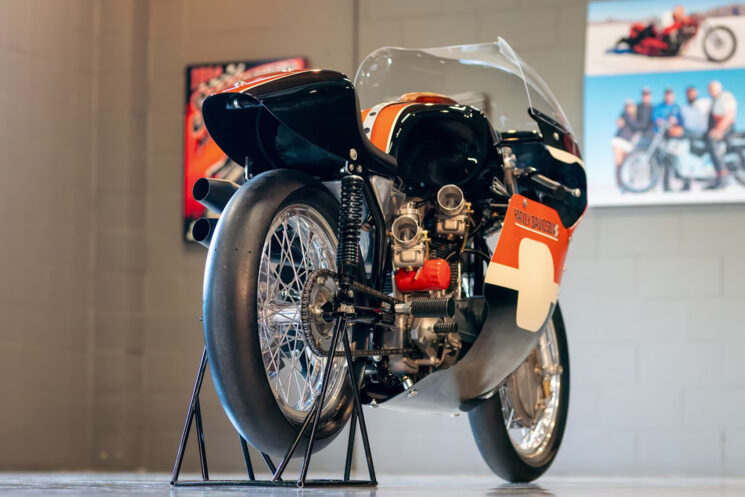
With scant resources to operate on, Harley’s initial effort at an OHV 750 was based on the 900 ci Iron-Head Sportster, with the engine de-stroked dramatically to fall with the allowable displacement. While the old KR running gear was solid, the engines were down on power compared to their side-valve predecessors, and the iron heads and cylinders had a nasty reputation for overheating—the impetus for the nickname ‘waffle iron.’
Harley had the answer in hand, as designer Pieter Zylstra had devised a superior alloy top end as early as 1969, but financial concerns drug out its development until 1972. Until then, the H-D faithful made do with the problematic Irons, with flat tracker Mert Lawill and California match racer Cal Rayborn achieving some notable successes.
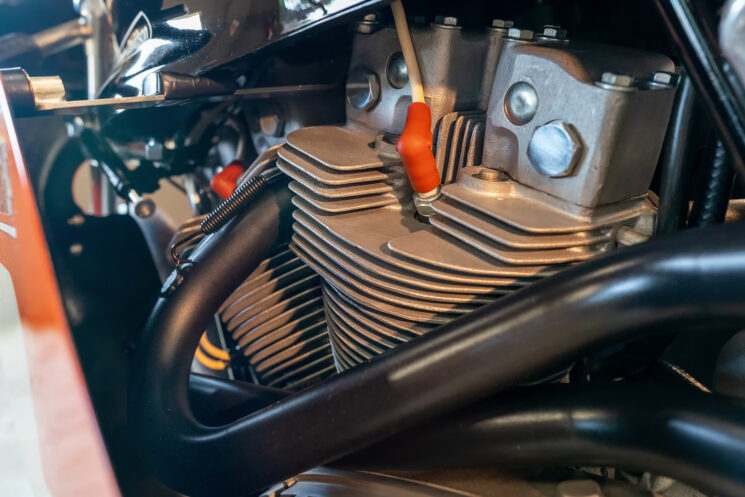
When the alloy-head XR debuted for the 1972 season, the history of AMA racing would read differently for decades to come. The XR proved dominant on the dirt, taking 29 of 37 AMA Grand National Championships from 1972 to 2008, but before the split in 1985, part of the championship included pavement as well.
While you may easily mistake the XRTT for a completely different motorcycle, the underpinnings are almost entirely XR. The alloy head, OHV 750 provided smooth revving up to 8,200 rpm, good for 73 hp through a pair of 36 mm Mikuni carburetors and tuned exhaust.
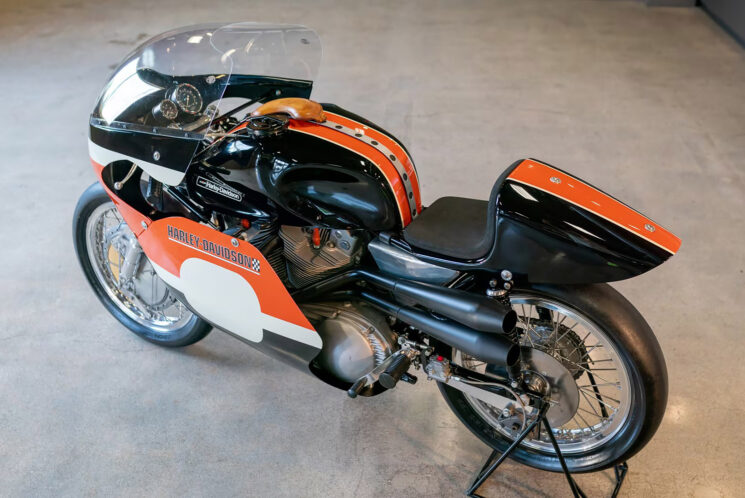
A sculpted 5-gallon fiberglass fuel tank with a leather chin pad and full bodywork mold around your body at full tuck, cut just clear of the controls. The oil bag under the seat is aluminum, and a Smiths tachometer monitors engine rotation.
Leaning on its European connections, Harley fit the XR and XRTT with a Ceriani telescoping fork and a pair of Girling rear shocks. Where the XR had bear hubs, a massive Fontana four leading shoe drum was fit up front, and a single caliper drum was used on the rear of the XRTT. Weighing right around 320 pounds, the XRTT was slim and trim for a Harley, and was right in line with the BSA triples it often faced.
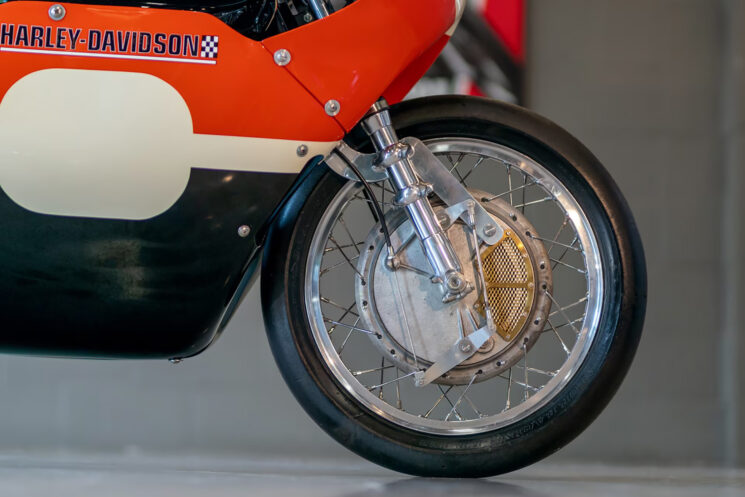
Somewhere between 15 and 25 Harley XRTTs were built, and riders like Mark Brelsford, Jay Springsteen and (most notably) Cal Rayborn put them to good use. Brelsford clinched the Grand National Championship in ’72, and Springsteen proved to be a dominant force in the Camel Pro Series in the late ’70s as well. Through the Anglo-American Match races, there was perhaps no more inspiring sight than the thundering V-twin XRTTs amid a field of Triumphs, BSAs, Nortons and Suzukis.
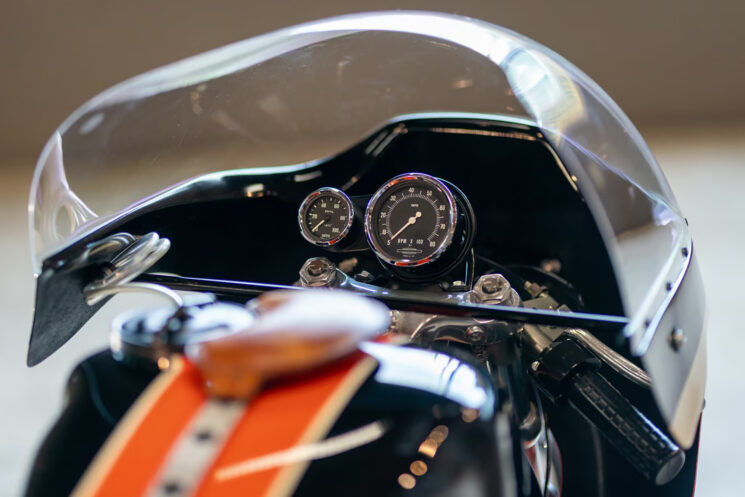
Impeccably good looks and competition history at a pivotal moment in Harley’s story have been kind to the XRTT, and you’d be hard-pressed to find one under $40,000. Lot R600.1 is a particularly stunning 1972 Harley XRTT, the first year of alloy-head production, and its powerplant was rebuilt by marque expert Carl Patrick. Except for the rubber, it looks right for ’72, and it’s worth noting that the four-shoe Fontana is still fit, as many were converted later to discs.
This 1972 Harley XRTT is selling at Mecum’s upcoming Las Vegas 2025 Motorcycle Sale, where it will cross the block at no reserve. Mecum hasn’t detailed any known competition history on the bike, and the alleged engine rebuild is the only detail we’re provided with. Maybe it was a spare, who knows? Whatever doubts we have simply melt away looking at the glossy finish of this better-than-new restoration. If it sells, we’re betting the high $40k range—and she’d be worth it.
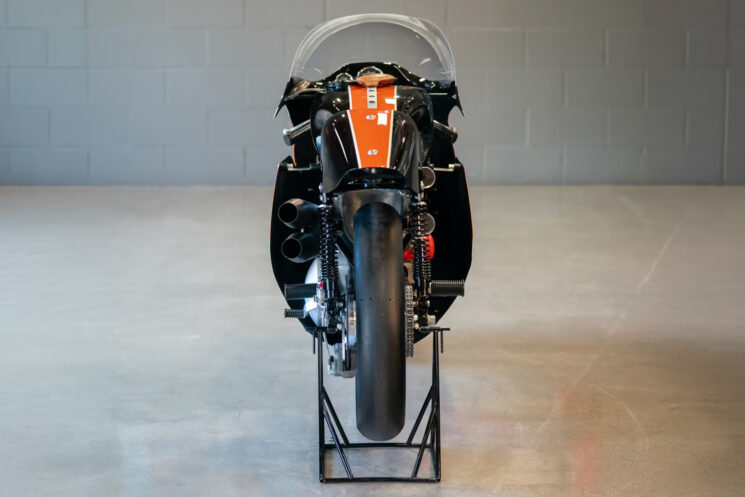
Source: Mecum
from Bike EXIF https://ift.tt/6NjSykB
No comments:
Post a Comment